May 16, 2024 | 23:21 GMT +7
May 16, 2024 | 23:21 GMT +7
Hotline: 0913.378.918
May 16, 2024 | 23:21 GMT +7
Hotline: 0913.378.918
The Department of Plant Protection (Ministry of Agriculture and Rural Development) had an online meeting on May 20 with China Department of Plant and Animal Quarantine (General Department of Customs) on the issue of approval and quarantine for fruits imported fruits into the Chinese market, especially for durian and passion fruit. In addition, the two parties also discussed regulations on phytosanitary requirements for 8 traditional fruits exported to China including banana, mango, litchi, longan, watermelon, dragon fruit, jackfruit and rambutan.
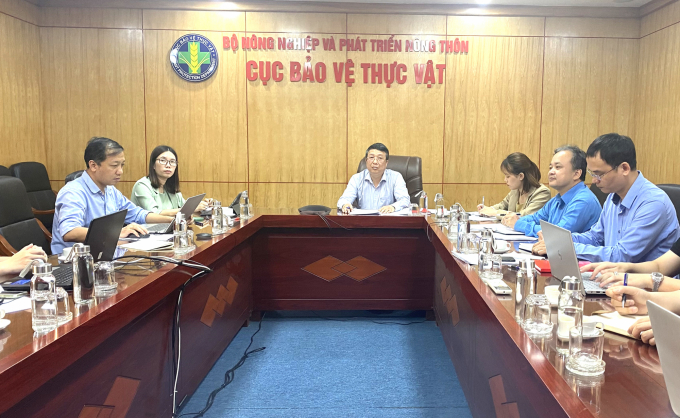
Mr. Hoang Trung, Director of the Department of Plant Protection along with specialized departments and committees had a meeting with China Department of Plant and Animal Quarantine (General Department of Customs) on the afternoon of May 20. Photo: Minh Phuc.
Mr. Vuong Ich Ngu - Deputy Director of the China Department of Plant and Animal Quarantine shared: "China currently imports fruits from many countries, but Vietnam's are ranked highest. Chinese people are very fond of Vietnamese tropical fruits”.
These fruits are imported mainly through international border gates such as Huu Nghi, Tan Thanh (Lang Son province) or major seaports such as Shenzhen and Shanghai. In particular, Vietnamese fruit products are sold in all Chinese provinces and cities. Therefore, China Department of Plant and Animal Quarantine said that it is "extremely important" to strengthen cooperation and ensure safety in the process of importing Vietnamese fruits into China.
According to Mr. Vuong, once quarantine issues arise, especially when there are signs of Covid-19 on the product packaging, Vietnamese fruit exports to China will be suffer heavily and Chinese consumers will not favour the products as much.
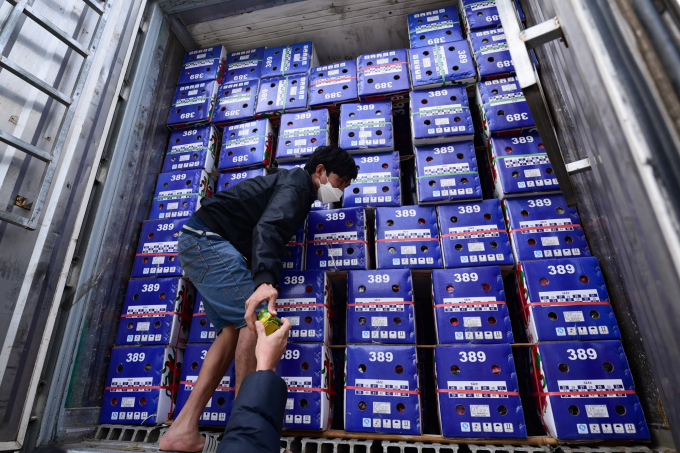
Chinese customs once detected signs of Covid-19 on Vietnamese product packages and fruit transporting trucks. Photo: Tung Dinh.
With that goal in mind, China Department of Plant and Animal Quarantine suggested that the Department of Plant Protection and related agencies strictly manage product packaging as well as processing facilities before customs clearance at border gates to minimize risks.
Mr. Hoang Trung said that the cooperation between Vietnam and China quarantine agencies in recent years has been very effective and regular, promoting the import and export of agricultural goods, and the increasing crop products.
“The two parties have had a long negotiation process regarding durians, with many discussions, agreements on technical issues, pest risk management as well as drafted a protocol. For that reason, we hope that the Chinese side will officially sign this protocol to take the next step in exporting durian to China" Mr. Trung emphasized.
Additionally, the Director of the Department of Plant Protection also asked Mr. Vuong directly: "When can we expect the Chinese side to sign the protocol on durian export, because the Vietnamese side has completed the procedures?"
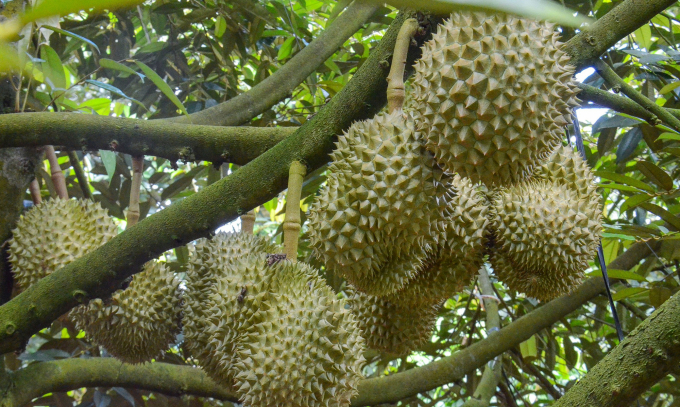
Vietnamese durians bear a delicious taste and they are harvested all year round, with its peak season from July to October.
The Department has currently sent documents for 33 growing areas and 30 packing facilities at the request of China General Department of Customs, many of which have been examined online by the Chinese side. The period from July to October every year is the peak season when durian is harvested the most, so China Department of Plant and Animal Quarantine is requeseted to urge relevant agencies so that the two sides can sign the protocol before July this year.
Regarding the proposal by the Vietnamese side, Mr. Vuong said that the Chinese love to eat durian, but durian is currently mainly imported from Thailand. The dossier on license to export Vietnamese durian to the Chinese market is currently being consulted by China General Department of Customs with relevant state agencies and legal agencies. Afterwards, China Department of Plant and Animal Quarantine will summarize and notify the Vietnamese side on the date of signing for the protocol. "We will do our best so that the two sides can hold the signing ceremony as soon as possible, and without much delay", Mr Vuong said.
According to Mr. Vuong, the two sides have reached an agreement on temporarily allowing passion fruit exports to the Chinese market. Consequently, the Chinese side urged the Department of Plant and Animal Quarantine for feedback on the draft provisional guidance for passion fruit exports. Withtemporary export to the Chinese market, China Department of Plant and Animal Quarantine will inspect and control the quality at border gates. If these exports meet the requirements, the number border gates will be expanded.
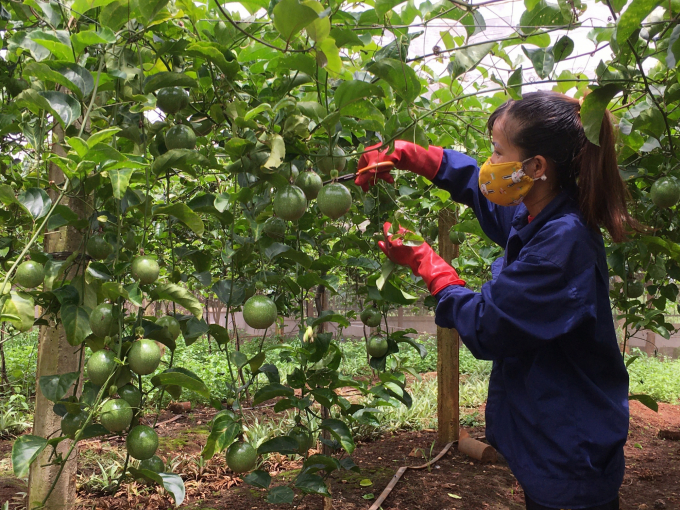
Passion fruit is grown mainly in the Central Highlands and Son La province.
Mr. Hoang Trung commented on this matter: "We have given technical feedback to the initial draft of the provisional guidance for passion fruit exports. We also consulted with ministries, branches and localities in accordance with legal procedures. After finalization, the feedback will be sent to China Department of Plant and Animal Quarantine immediately.
At the meeting, Mr. Vuong said that, the two sides have currently not signed a protocol on exporting 8 traditional Vietnamese fruits to the Chinese market, so the frequency of shipments subject to inspection is very high. China Department of Plant and Animal Quarantine hopes that the two sides can sign a protocol on these eight fruits so that the Department can take measures to manage production, packaging, processing, export facilities to standardize products right from the early stages. As a result, China Department of Plant and Animal Quarantine will make suggestions to the General Department of Customs to reduce the inspection frequency.
“We have also sent a draft protocol on exporting bananas from Vietnam to China, and we hope the Department will consider and give comments. Because the Plant and Animal Quarantine Department found that banana products present the most problems after inspection. China Department of Plant and Animal Quarantine is requested to coordinate and communicate the requirements of the protocol, so that the clearance rate of banana exports to China will be higher", said Mr. Vuong.
In addition to bananas, China Department of Plant and Animal Quarantine also wishes to sign a protocol on fruits imported into China in great numbers including watermelons and dragon fruit.
Mr. Hoang Trung asked: "We have heard that official fruit exports to China are only subject to 30% of the inspections, is that true?"
Mr. Vuong replied that such information "is not completely true". Firstly, inspection rate is based on specific fruit and the risk of carrying pests, for example, for coconuts, the frequency of inspection will be less than 30%, because we rarely detect pests. As for fruits with higher pest risk, the inspection rate will be 30% higher.
In summary, the inspection rate of shipments will depend on the pests development of certain fruit and can be adjusted depending on the current situation each time. For example, for mangosteen, after the protocol is signed, China Department of Plant and Animal Quarantine must check whether the business is doing well, or if the product meets the requirements. If the business does well, they will reduce the frequency of inspection to 30%, otherwise, they are subject to an inspection rate of 80%, sometimes even 100%.
Mr. Hoang Trung said that, based on China's regulations and the content under the protocol signed by both countries to export mangosteen from Vietnam to China, we have been regularly informing manufacturers and exporters on regulations for the 8 remaining types of fruits, so that they can fully comply with the protocol's regulations, minimizing violations of quarantine as well as food safety.
“We acknowledge that following bananas, watermelons and dragon fruits will also require a protocol. And to accomplish this goal, we request China to have a draft and send it to the Vietnamese government as soon as possible, from which we will review in accordance with Vietnam's regulations and give feedback so that both sides can sign these protocols", Mr. Trung emphasized and added that the Department of Plant Protection has also sent documents regarding coconut and pomelo exports to the Chinese market, with hopes that China General Department of Customs will consider and respond at the earliest.
China General Department of Customs announced an online weekly inspection plan for Vietnam's farms and product packaging facilities. The General Department will assign Nanning Department of Quarantine to implement this content. Accordingly, Nanning Department of Quarantine will send a list of establishments to be inspected to the Vietnamese side weekly, and carry out online inspection.
Translated by Nguyen Hai Long
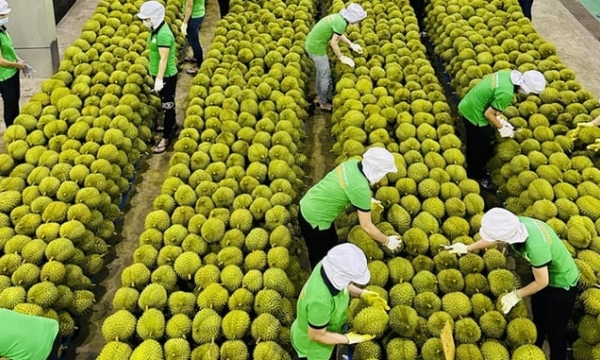
(VAN) Vietnam's fruit and vegetable exports in 2023 reached USD 5.6 billion, an increase of 66.7% compared to 2022 thanks to a sharp increase in exports to China, the EU, and Korea.
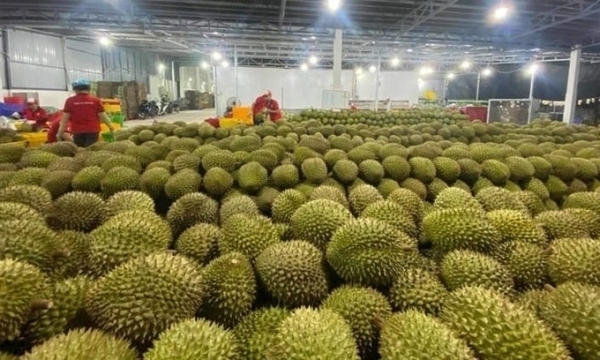
(VAN) Vietnam hopes to expand durian exports to India, helping reduce dependence on China and opening up new development opportunities for the agricultural industry.
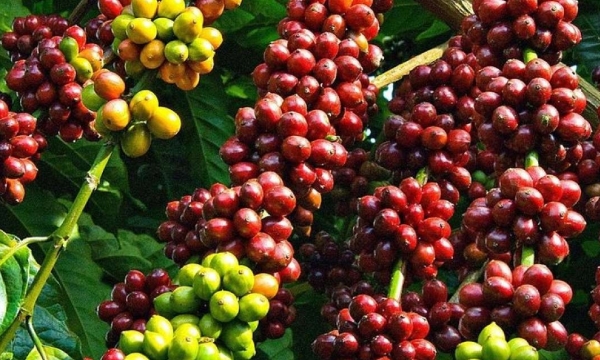
(VAN) Coffee prices dropped by 35,000 dong per kilogram one week after reaching a record high. However, the downward momentum is expected to be halted by ongoing concerns over coffee supply.
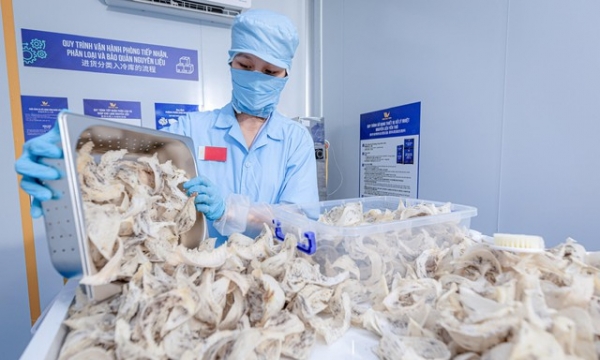
(VAN) The first shipment of bird's nests and Vietnamese agricultural products from Hai Yen Nha Trang Company has just been 100% cleared into France.
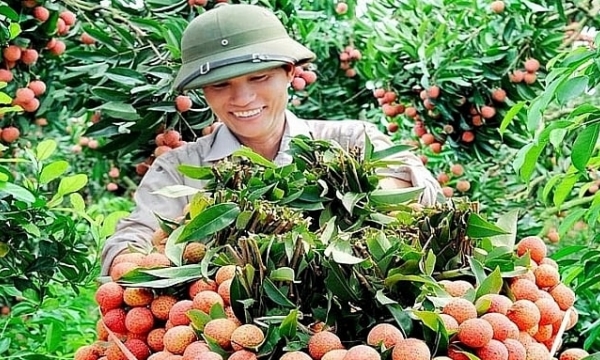
(VAN) This year's lychee season is considered by Bac Giang province to have the highest quality ever, with output forecast to reach 100,000 tons.
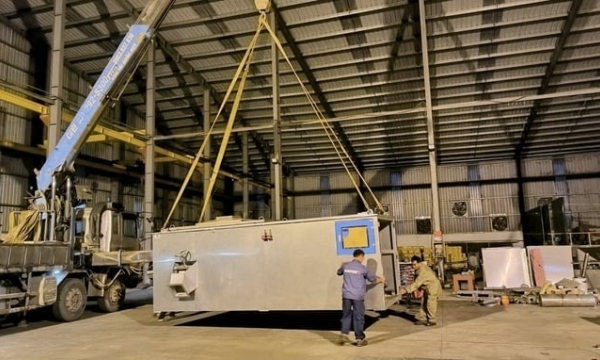
(VAN) Recently, Mavinex Joint Stock Company (a member of Mavin Group) successfully exported animal carcass processing machines to customers in the Philippines.
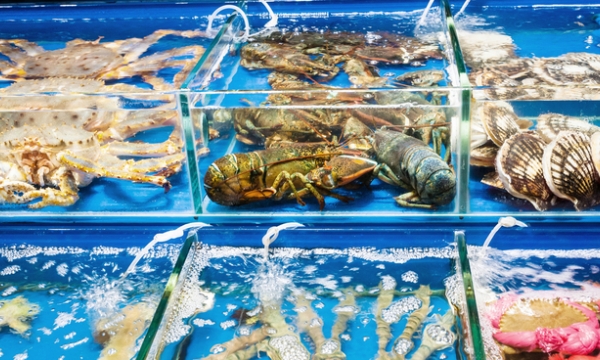
(VAN) Imports of live crab into China climbed by 26% to an amazing 1.63 billion USD in 2023, while imports of live lobster increased by 29% to reach 790 million USD.